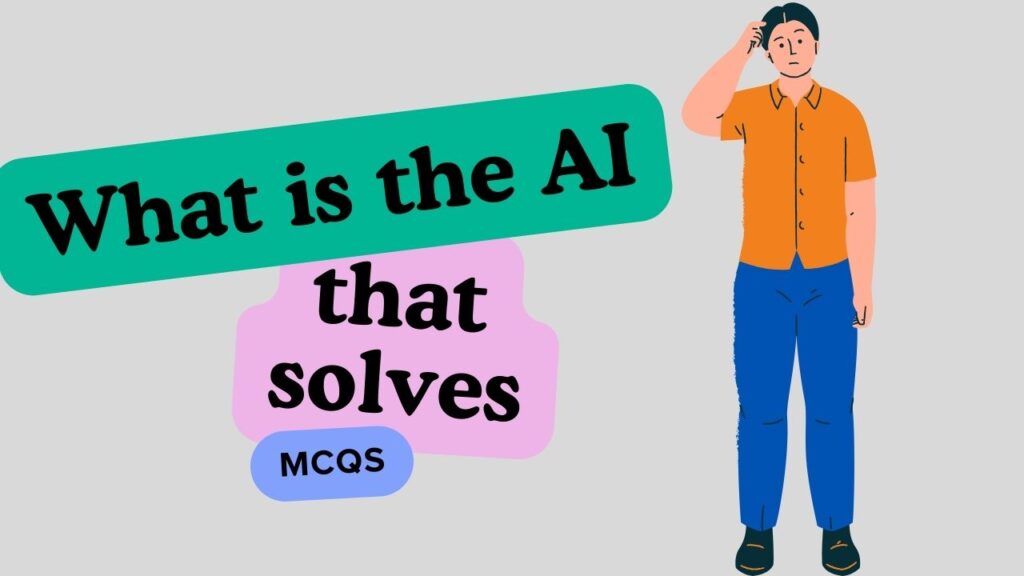
Artificial Intelligence (AI) has emerged as a powerful ally for students seeking efficient ways to manage the problems of multiple-choice questions (MCQs) in the ever-changing environment of education technology. AI-powered MCQ tools use complex algorithms to understand the intricacies of questions, analyze response options, and give accurate replies. This article delves into the world of AI that solves MCQs, focusing light on unique programs like Quizard, Questgen, QuizWhiz, and Quizbot, as well as their contributions to improving the learning experience.
Quizard: Giving Students Access to AI Solutions
Quizard, a fantastic application meant to assist students at all academic levels, is at the forefront of AI-driven educational solutions. Quizard’s major functionality is its capacity to evaluate and solve multiple-choice and short answer questions. One remarkable feature allows users to take a snapshot of a math problem, and Quizard’s AI will quickly deliver the solution along with a detailed explanation. This seamless integration of AI into problem-solving activities is a huge advancement in instructional technology.
Questgen: Question Generation Driven by AI
Questgen, another AI education pioneer, uses innovative techniques to automatically construct MCQs from any supplied text. The basic technique entails selecting key sentences that embody key concepts, recognizing keywords and key phrases that comprise the correct answer, and finally designing questions around these pieces. This method not only speeds up the question-generation process, but it also assures that the extracted keywords or key phrases correspond to the correct response. Questgen’s innovation provides instructors with a dynamic tool for developing varied and relevant examinations.
QuizWhiz: Converting Text into Multiple-Choice Questions
QuizWhiz is a transformational AI-powered application that converts any text input into a series of MCQs. Users simply enter a body of text, and QuizWhiz’s AI engine generates thought-provoking questions, as well as their respective solutions and multiple-choice possibilities. This feature is especially useful when educators want to diversify their evaluation techniques or when students want more practice on specific areas. QuizWhiz exemplifies AI’s adaptability and versatility in the education industry.
AI-Assisted Personalized Learning: Quizbot and QuizWhiz
AI solutions such as Quizbot and QuizWhiz take center stage in the quest for individualized learning experiences. These technologies can assess a user’s prior responses and adapt quizzes depending on individual preferences and knowledge levels by leveraging the power of machine learning. Quizbot and QuizWhiz’s adaptive design ensures that questions neither overwhelm nor undersell a user’s skills. This tailored approach improves the effectiveness of AI-powered learning aids, making them valuable educational companions.
A Supplemental Role: AI’s Learning Limitations
While the capabilities of AI for MCQ solving are clearly astounding, it is critical to recognize their position as supplemental tools. These AI applications are not meant to replace extensive research and mastery of the subject area. Instead, they serve as aids, assisting with test preparation and reinforcing topics. Students are reminded that, while these technologies are useful, academic achievement necessitates a comprehensive approach to learning.
Conclusion
The incorporation of AI into multiple-choice questions is a big step forward in the growth of educational technology. Quizard, Questgen, QuizWhiz, Quizbot, and other artificial intelligence (AI) applications are changing the way students approach assessments and test preparation. These applications demonstrate the immense potential of AI in education, from solving complicated math problems to creating individualized quizzes. As we mark the one-year anniversary of these advancements, it is evident that the future of learning is becoming increasingly linked with artificial intelligence capabilities. Students and educators alike may leverage the power of AI to uncover new depths of knowledge and comprehension by embracing these technologies as partners on the educational journey.